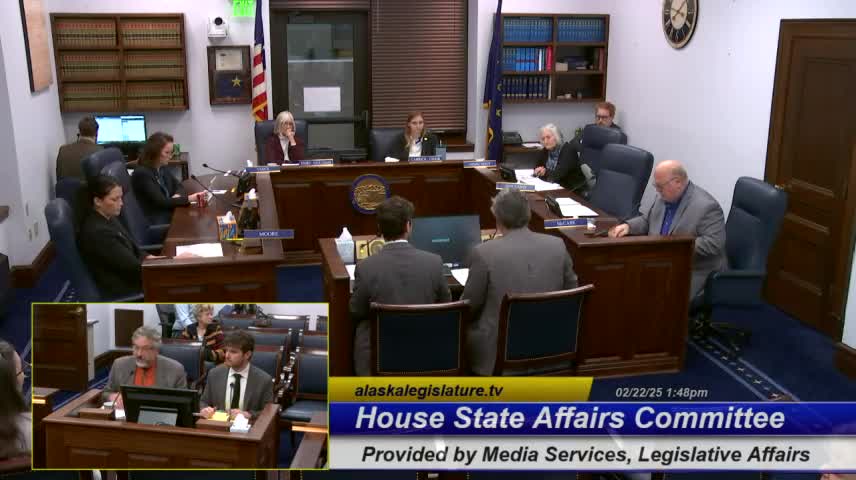House bill proposes excise cut and replacement with 6% sales tax; industry warns 6% would hurt legal market
Get AI-powered insights, summaries, and transcripts
Subscribe
Summary
Representative Carrick reintroduced House Bill 91 to cut the $50-per-ounce excise tax, phase it out, and replace it with a 6% consumer sales tax while adding regulatory changes such as upstream sales, crop tagging and biannual licenses; industry witnesses urged a lower sales tax or a flat excise tax to avoid pushing customers to the black market.
Representative Carrick told the House State Affairs Committee he reintroduced House Bill 91 to enact marijuana tax reform recommended by a 2022 governor’s advisory task force and requested by industry stakeholders.
Carrick said HB 91 is a near replica of the measure the previous legislature considered and would provide immediate tax relief by reducing the current excise tax from $50 per ounce to $12.50 per ounce (effective July 1). The bill then repeals the excise tax on Jan. 1, 2026 and establishes a 6% consumer sales tax on marijuana sales, with proceeds split into the same designated funds currently supported by marijuana revenue.
A staff presentation summarized FY revenue from the legal market at about $27.2 million, with allocations including roughly $13.5 million to the Recidivism Reduction Fund, $6.7 million to the Marijuana Education and Treatment Fund, and approximately $6.9 million to the unrestricted general fund. Representative Carrick said the bill’s structure aims to stabilize the legal market, which committee testimony described as struggling and losing ground to black and gray markets.
Policy changes in HB 91 include: allowing “upstream” transfers (retailers returning unsold products to producers for disposal or conversion into other products); requiring a tag or tracking number per crop for plants 8 inches or higher (rather than per plant); extending marijuana establishment licenses to two-year terms (biannual licensing); shifting tax remittance from monthly to quarterly statements; and directing the Department of Revenue to establish tax-collection facilities in each judicial district (the fiscal note identified sites in Fairbanks, Juneau and Nome in addition to an existing Anchorage facility).
Committee members sought revenue modeling and operational detail. Representative Holland and others asked whether a 6% sales tax would recover lost revenue and how rural communities would be affected. Carrick and staff said modeling from the prior legislative session suggested a small revenue decline overall but argued the current excise tax is driving product to untaxed markets and, left unchanged, could lead to larger revenue losses.
Industry testimony was mixed and in places strongly critical of a 6% sales tax. Lacey Wilcox of the Alaska Marijuana Industry Association told the committee the association supports some provisions of HB 91 — such as biannual licensing and batch tagging — but opposes a 6% sales tax. Wilcox said Alaska’s legal operators already face high operational costs and high taxes, and urged a simplified flat excise tax of $12 per ounce as a more enforceable alternative. "The tax burden alone is suffocating small businesses," Wilcox said, warning that high retail taxation combined with local taxes would push consumers to illicit sellers.
A public caller, George Pierce from Kasilof, also testified that high legal prices drive buyers to the black market. Pierce said price differentials mean consumers can purchase larger quantities more cheaply off-market and warned that heavy taxes are collapsing mom-and-pop businesses.
Staff also identified an alternate bill, Senate Bill 73, which the fiscal note indicated would produce roughly a $14 million revenue loss under its structure (an excise cut without a replacement sales tax and without the bill’s policy changes). Carrick said that, compared with doing nothing and allowing the legal market to shrink, HB 91 is intended to preserve the regulated industry while keeping designated public programs funded.
The committee took public testimony and closed the hearing without a vote; Representative Carrick said he might return the bill for further hearings and that the committee will receive follow-up fiscal and program details on request.
